The Wolf Hour (2019)
Directed by: Alistair Banks Griffin
Written by: Alistair Banks Griffin
Starring: Jennifer Ehle, Jeremy Bobb, Naomi Watts
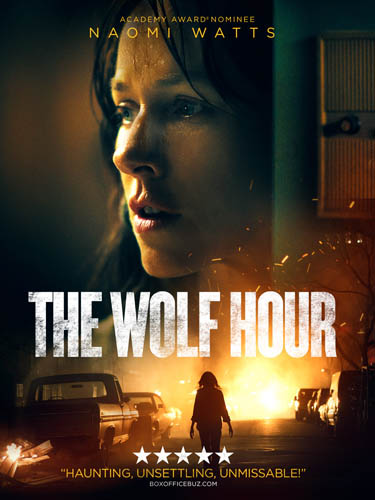
THE WOLF HOUR
Directed by Alistair Banks Griffin
To the, presumably many, people reading this review years later, it was written in late March 2020, when the UK had been undergoing lockdown for about a week. For those bored and shut inside, with nothing happening, this film was likely the absolute antithesis of what they would want to see. I say this because the Wolf Hour, from writer/ director Alistair Banks Griffin, is a boring film about a shut-in, in which nothing happens.
Not that you’d predict this from the setting. It’s New York in 1977, during the Son of Sam murders and the Bronx blackout – it’s as decent a backdrop for a thriller as any you may think. Let’s explore, you may say. But not so fast. A setting can only be as exciting as the people that populate it. In this case, we follow June (Watts): a once-successful author who caused a ruckus because her liberal values were at odds with her conservative family. Estranged, following a public tragedy, she lives alone in her grandmother’s apartment afraid of going outside or writing a follow-up, in case she ruins things for more people. Try as she may though, she can’t block out the world beyond her doorsteps, and the world outside keeps intruding via some scamp repeatedly buzzing her buzzer. And that’s pretty much it. What goes for a story is rather minimalist. In that respect, The Wolf Hour is a film that creates an entirely new genre – home invasion, minus the invasion.
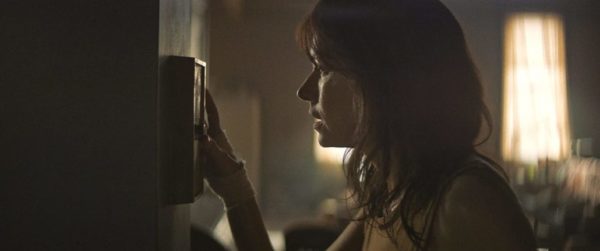
There are still moments of tension: ongoing issues with an old friend Margot (Ehle), allusions to a killer preying on people that look just like June and the afore-mentioned buzzes provided smatterings of drama. However, what’s particularly frustrating is that for most of its run time this is the sort of confidently boring film that seems to challenge viewers to enjoy it. What few moments we get of horror are fleeting and far between, and thanks to the choice of the perpetrator using a buzzer, instead of knocking on the door, they carry all the intensity of sleeping in during quarantine. Still, the film leans heavily on the thriller conventions it fails to satisfy. Thus the script does the deep sense of atmosphere its cinematography achieves a disservice. The setting is novel and potentially provocative. However, I don’t think the film does enough with it. One could argue there’s something inherently problematic in a night of violence in an impoverished area, predominantly populated by people of colour being the backdrop, for a wealthy white woman’s arc. I’ll give Griffin the benefit of the doubt and assume that his intention was to juxtapose different levels of privilege rather than provide a parallel: that with her support network, and her wads of money, she is comparatively lucky. One of the few sustained dialogue scenes even says as much. Yet given her convoluted backing story is, by any measure, tragic, I’m not sure how handy it is to say it could always be worse or to portray her depression as something she can snap out of. Particularly given only one of her fellow occupants in the Bronx is characterised, with the rest amounting to the sorts of stereotypes a more conservative film could easily play to at face value as a reason to fear going out.
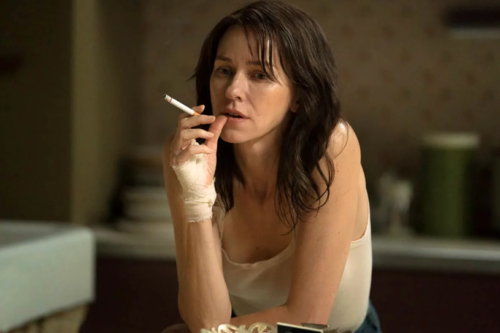
On that point, when the plot isn’t exciting, then the character journeys need to be. Unfortunately, I found all of the roles, including June, lacking. Naomi Watts over performs in an underwritten part, giving a depiction of trauma that’s raw, intimate and full of nervous energy. She almost recalls her turn from Mulholland Drive, which still ranks up there as an all-time favourite. But while the movie’s relentlessly downbeat tone gives its smatterings of joy, like when she euphorically dances to Ghost Rider by Suicide, a cathartic power we get kept at too much of an emotional distance. The movie’s more vague misery than nuanced drama. There are some oddly cheap moments to compensate a bored audience, such as a convenient VHS recording that does a lot of the heavy lifting. The early scenes with Margot also show some promise, even if their relationship is frustratingly undefined. However, despite being grateful for these offerings, I was unable to empathise with or care what happened to her. Hence from the get-go, the film lacked forward momentum.
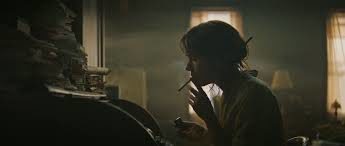
About 75 minutes of the way through The Wolf Hour it dawned on me that I had literally no idea where it was going. Not because the plot was so unpredictable, but because the narrative hooks were so dull. I was right to wonder, as what resolution we got was at once on the nose, and also vague as hell: a typical ending, which could be the climax to any trauma film, but needed more groundwork to land. The sum of many of its parts is good, including the aesthetic and acting, though without captivating storytelling they only add up to a 1.5-star score. It didn’t make me happy, nor thrilled, nor sad. But bored, and bereft for the outside world, knowing I can’t go out so… Hey, maybe I identified with June after all!
Rating: 








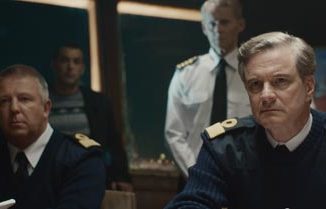
Be the first to comment